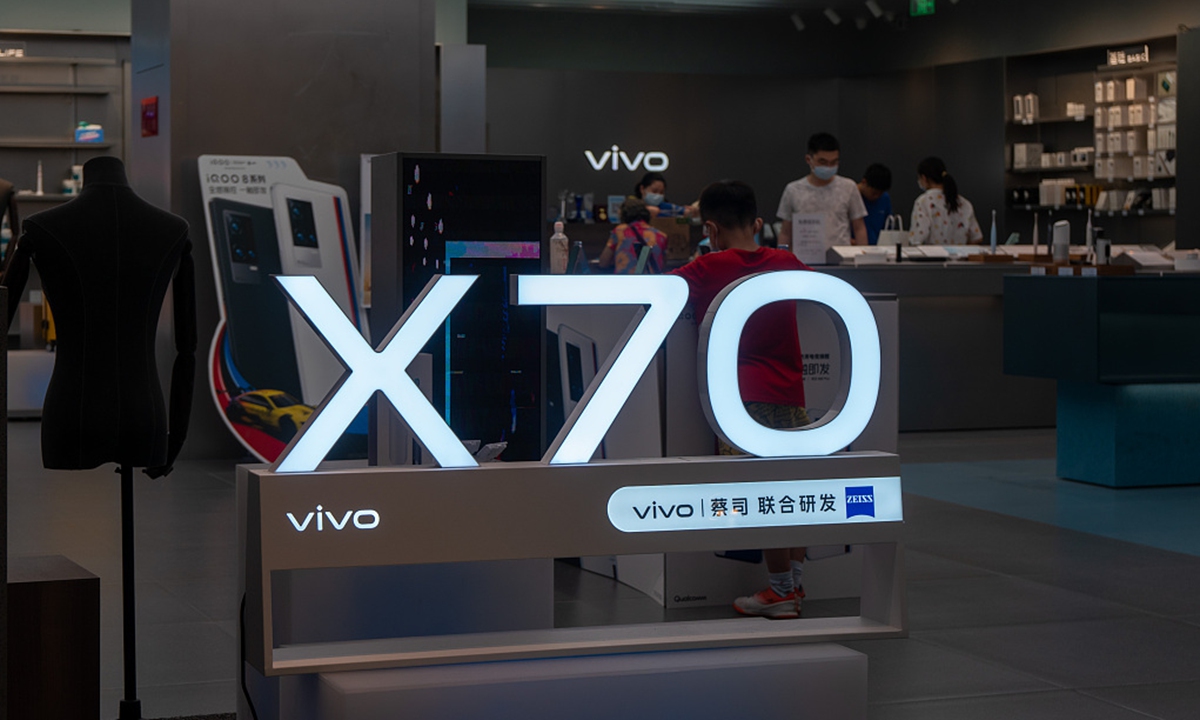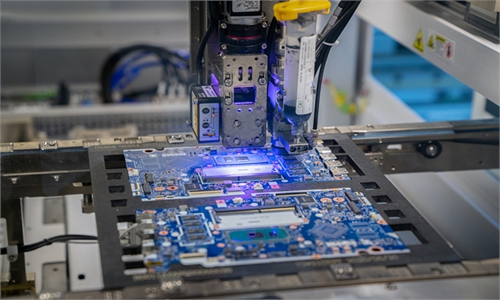Vivo launches new flagship series featuring stunning photography capabilities filling a gap in domestic market left by Huawei

The photo taken on September 5, 2021 shows a Vivo store in Shanghai. Photo: CFP
Chinese smartphone maker Vivo launched on Thursday its flagship series X70 featuring strong photography capabilities. The company announced the new series will open up a "new track for mobile photography, bringing mobile images to unprecedented new heights."
The firm has also unveiled its proprietary imaging chip V1 on Monday, joining other leading domestic phone manufacturers, including Huawei, Xiaomi and OPPO, which build in-house chips as they seek self-sufficiency in chip-making amid the US' push for "tech decoupling" with China.
It is the first professional imaging chip the company has independently developed. The research and development (R&D) process lasted 24 months and more than 300 people participated in the project, according to a press release from the company.
With the powerful computing power of the V1 chip, the vivo X70 Pro/X70 Pro+ supports real-time black light night vision function. The brightness of the film effect can be seen through the viewfinder and the exposure intensity can be manually adjusted to give freedom for night scene creation, the firm said during the launch event.
The launch of the new product also came as competition among domestic smartphone manufacturers intensifies and strong competitors like Huawei are facing a chip shortages amid US ban, leaving more room for rivals.
Vivo has held the top spot in China's smartphone market so far in 2021, according to market research firm Counterpoint Research. The manufacturer captured a 23 percent market share in the second quarter, followed by OPPO at 21 percent and Xiaomi at 17 percent.
However, analysts still cautioned that difficulties are huge for Chinese smartphone makers to "grab the high-end" market share, which is now largely occupied by US tech giant Apple.
Basically, their dependence on external companies, including Qualcomm and MediaTek, results in almost no differentiation among smartphones produced by phone vendors, experts said.

